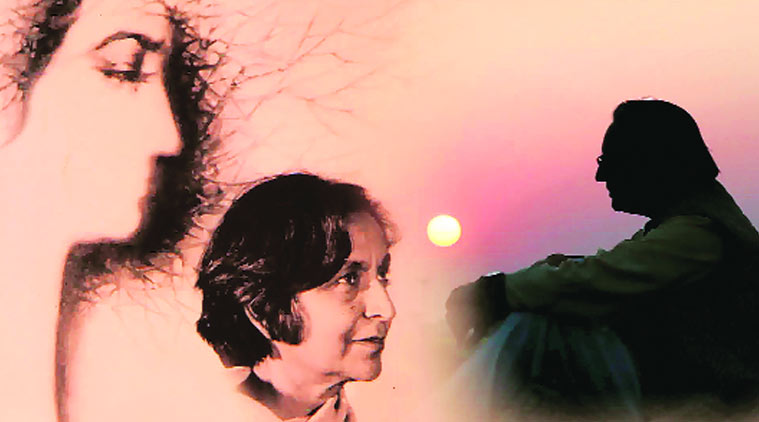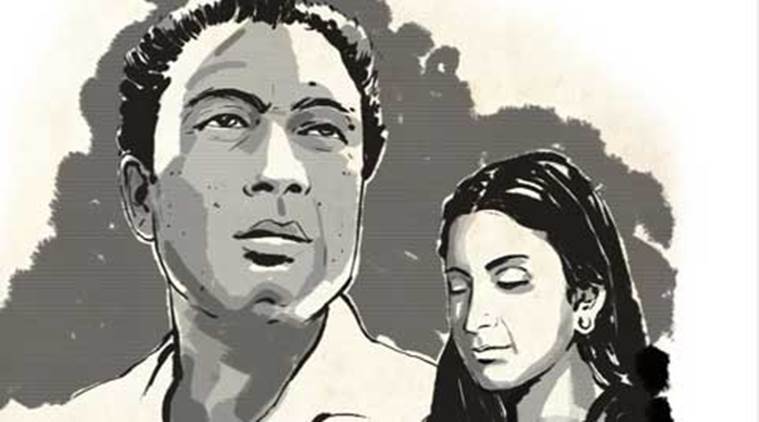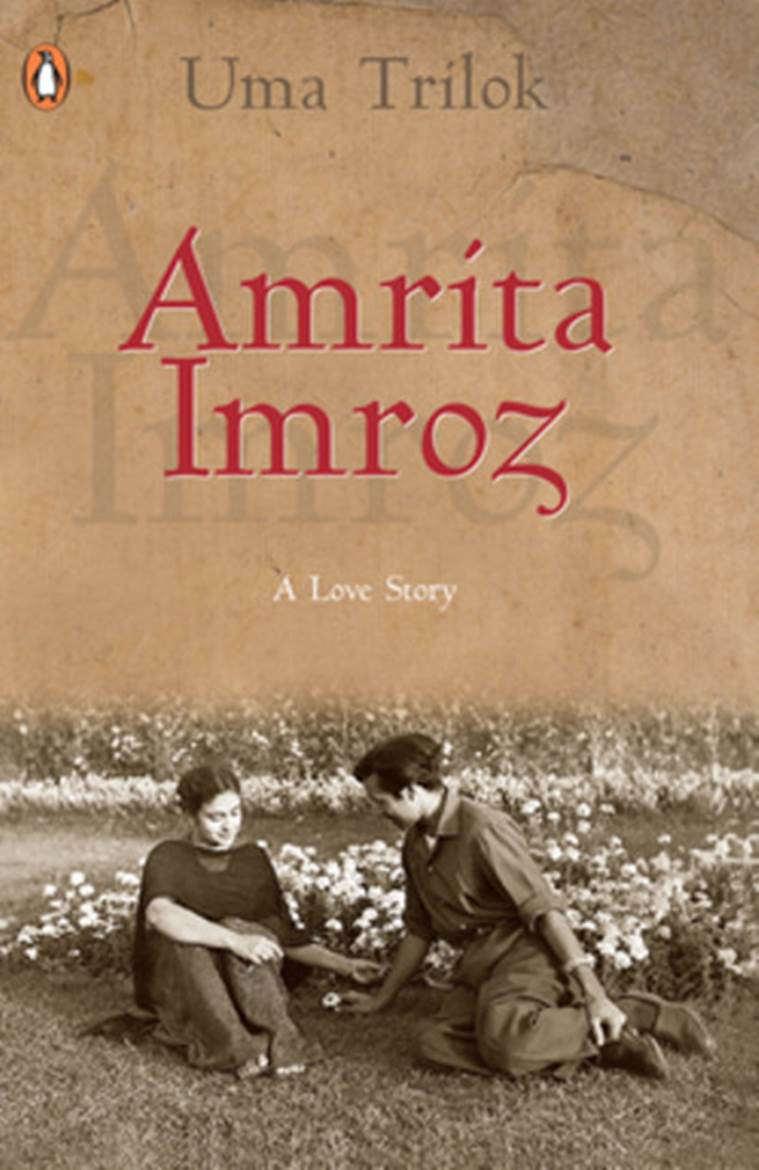‘With Sahir her life was illusive but with me her life is real’: Imroz on Amrita Pritam and their relationship
Amrita Pritam and Imroz's relationship might seem conventional but it was far from it. They lived for four decades without getting married. Uma Trilok in the book Amrita-Imroz : A Love Story writes about their relationship. Read the excerpt here.

Amrita Pritam and Imroz lived together for four decades without getting married. (Source: File Photo)
The relationship between Amrita Pritam and Sahir Ludhianvi has been the fodder of several books. Their unrequited love story has also been speculated and discussed by readers for years. Pritam too had never hesitated in talking and writing about it. Although she was married at the age of 16 to one of her admirers, it was her love for Ludhianvi that withstood the test of time and later became almost an obsession for her.
Marked by several upheavals, it was a difficult relationship. However, it was Imroz, the painter, whom she lived with, who loved her dearly. A man aware of Amrita’s affection and certainly assured of his own feelings for her. Their relationship might seem conventional but it was far from it. They lived for four decades without getting married. Uma Trilok in the book Amrita -Imroz : A Love Story writes about their relationship. The book also sheds light on Imroz’s side of the story, his unwavering faith in his love and his charm that won his rivals over.
On Amrita Pritam’s birthday, here’s an excerpt from the book. It was published by Penguin in 2006.
ALSO READ | Tumhari Amrita
During one of my visits to Amrita, I asked Imroz how he felt about Amrita’s affection for Sahir and later for Sajjad. He just laughed over my question. ‘I will tell you something—once Amrita told me that if she had got Sahir, she would not have got me. You know what I said? I certainly would have got you even if I had to pull you out from Sahir’s house.’ He added, ‘When you love someone and you are sure of your love, you do not count the obstacles on the way.’
Softly, with a long thoughtful pause, in his own unique way, he continued, ‘You know, Amrita gave her book to me to give to Sahir, when I went to Bombay. I very gladly took it and gave it to him.’ After another thoughtful pause, he said, ‘I knew how much Amrita cared for Sahir but I also knew how much I cared for Amrita.’ I asked him another question, ‘You know, Amrita got inspiration from Sahir; she wrote, ‘Sunehre’, the book that brought her the Sahitya Akademi Award for Sahir. Also she openly talked about it. How did you fit into her life?’ He replied with a lost-in-thought look on his face, ‘With Sahir her life was illusive but with me her life is real. He left her restless but with me she is fulfilled.’
I interrupted, ‘Sahir is quite vividly featured in Ik si Anita, Dilli Diyaan Galiyaanand Akhari Khat; so is Sajjad Haider in Neighbouring Beauty and Seven Years.’ He continued, ‘Sajjad also was a very close friend of Amrita since her radio days. A friend in the real sense. For the first time in Sajjad Haider’s company Amrita realized that a poem does not only get created out of passion of love, it can come out of a deep friendship also.’ After a short pause, he remarked, ‘For him she had said, “Buy me a pair of wings, stranger, or come and live with me.”’
After another thoughtful pause, he went on, ‘He really cared for Amrita in a very special way. After partition, Sajjad wrote to Amrita from Pakistan, off and on, I know that. I know Sajjad braved the riots of 1947 to see Amrita. He wrote to her: Mein ek urte hue pal ki mulakat ke liye tarsa hoon. (I have been thirsting for a moment’s meeting with you.) I know they could share their very personal problems with each other. I believe Amrita told him about me also. That is why when we wrote a joint letter to him he wrote back to me saying, “I have not had the pleasure of knowing you, my friend, but I know you from a composite picture Ami’s (he used to call Amrita—Ami) letters have made. Tera raqib tujhe saalam karte hai (your rival salutes you).” Before his death, Haider returned Amrita’s letters through a friend who was visiting India. When Haider’s friend brought the letters to Amrita she handed them over to me to read. How could I have read them? I burnt them all.’
Taking a deep sip from his cup of tea, he continued: ‘When Guru Dutt offered me a job in Bombay, I came to break the news to her. Amrita was silent for a while and then she told me a story. It was a story of two friends, one very handsome and the other not so. A beautiful girl gets attracted towards the handsome one, who takes help to win her over from his less good-looking friend who also loves her ardently, but does not express his love because of his looks. The girl is smitten by the handsome man and eventually marries him. But soon war breaks out and both the friends are sent to the front on duty.
The husband regularly writes to his wife but all the letters are composed and written by the friend. Soon after, the husband dies in the battlefield. His gravely injured friend is brought to the hospital, where the girl goes to meet him. While remembering her dead husband, she shows all his letters to the friend. The friend starts reading them, it becomes dark soon but he still continues to read them because he knows the words by heart as they were all penned by him and not by the dead husband.
Soon the friend’s condition starts deteriorating, and he passes away. The girl says, “I loved only one man. But lost him twice.”’ Sighing deeply, Imroz continued: ‘She thought I did not understand the implication of the story, but I did. To me she only said, “Sahir Bombay chala gaya, hoon toon vee ja reha hain!” (Sahir went to Bombay and now you are also going!) There was a deep disappointment in her voice, which conveyed the feeling that those who go like this never return.’ After a long thoughtful pause he went on, ‘I went to Bombay but I wrote to her on the third day that I was returning. I knew that if I did not return, I would lose Amrita. She has never expressed her love openly to me and neither have I mine, to her. She wrote of it only in poems:
Winds in my city
You set my heart on fire
Why?
Have you come past his city?
Your every breath
Sings restlessness,
Why?
Have you come past the path
Love takes?
You set my heart on fire
Why?
Have you come past his city?
Your every breath
Sings restlessness,
Why?
Have you come past the path
Love takes?
That was his side of the story. Later I came to know that every evening on the terrace of his house, Imroz would wait just to have a glimpse of the vehicle that brought Amrita from her office at the All India Radio. He would continue to stand and stare even after the vehicle went by. Here he waited for her and there she wrote for him:
Cuckoo my heart sings
My tongue suffers blisters forbidden
With pain I get ensnared.
My tongue suffers blisters forbidden
With pain I get ensnared.
For me each visit to Amrita’s house was a journey to a new world of relationships.






















 Amrita Pritam and Sahir Ludhianvi’s story was marked by passion and upheavals.
Amrita Pritam and Sahir Ludhianvi’s story was marked by passion and upheavals. Amrita Pritam and Imroz’s relationship was far from being conventional. (Source: Amazon.in)
Amrita Pritam and Imroz’s relationship was far from being conventional. (Source: Amazon.in)
No hay comentarios:
Publicar un comentario